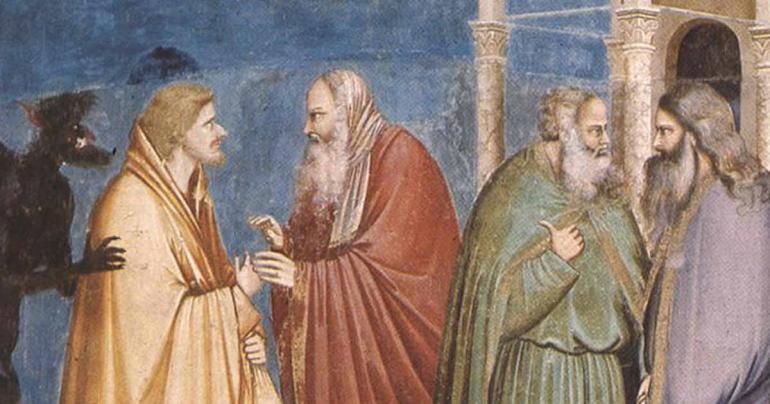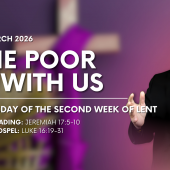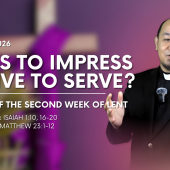Human betrayal of God’s goodness

April 5, Wednesday of Holy Week
Is 50:4-9a; Mt 26:14-25
The readings of today give us a picture of human betrayal despite God’s goodness. In the first reading, the Prophet Isaiah presents God’s goodness in his life. God is always at his side, helping him in many ways. He is afraid of nothing because even if danger comes and threatens his life, God would come to his rescue. “The Lord God is my help.”
If in the first reading Isaiah shows the goodness of God in his life and so gives his total trust to him, the example of Judas Iscariot would tell us that not all human beings have a grateful attitude towards the goodness of God. The attitude of Judas represents those who, despite God’s goodness to them, betray God because they want to follow their own interests and preferences. Their choice for God, that is, the good and the truth, is compromised for a particular interest. They exchange God, the good, and the truth, for something that brings interest to themselves. Judas betrayed Jesus for thirty pieces of silver.
In what way have we betrayed Jesus? Have we compromised the truth for a position? Have we sacrificed the good of our family and our integrity for selfish desires? All the problems that we have in our society like corruption, injustice, the proliferation of fake news, war, abortion, divorce, broken families, and so on happen because we betray God. We close our hearts to the goodness of God to serve our selfish desires. For these people, Jesus says, “Woe to that man by whom the Son of Man is betrayed.”
We may have followed the example of Judas in the past, but today, one day before we enter the triduum of Easter celebration, the readings once again invite us to answer the Lenten call “Repent.” It is a call to return to God so that our Easter celebration becomes an avenue to experience the fullness and truth of God’s merciful love. For that to happen, we need the help of God’s grace.
Radio Veritas Asia (RVA), a media platform of the Catholic Church, aims to share Christ. RVA started in 1969 as a continental Catholic radio station to serve Asian countries in their respective local language, thus earning the tag “the Voice of Asian Christianity.” Responding to the emerging context, RVA embraced media platforms to connect with the global Asian audience via its 21 language websites and various social media platforms.














